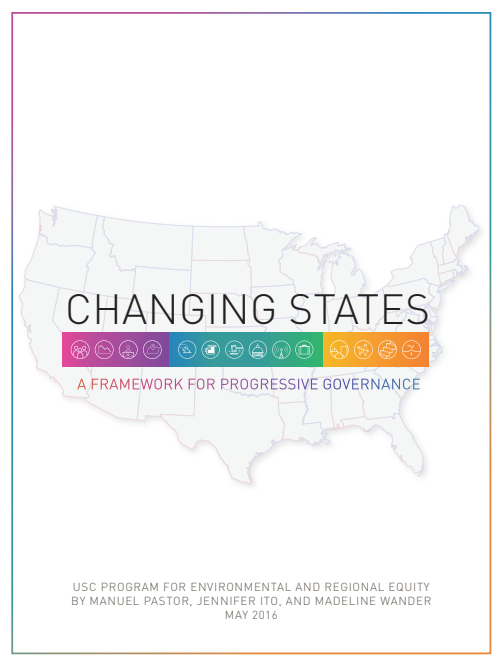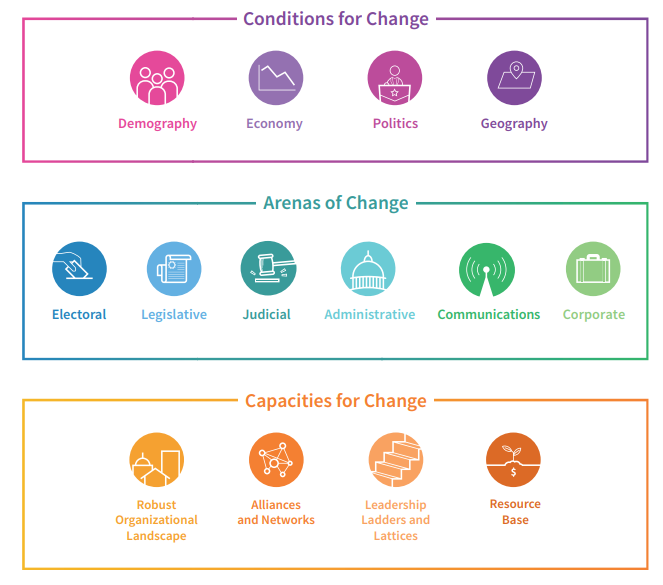
–
Primary Authors: Manuel Pastor, Jennifer Ito, and Madeline Wander
Contributors: Chris Benner, Vanessa Carter, Robert Chlala, Jared Sanchez, and Alejandro Sanchez-Lopez
Please note: reports dated earlier than June 2020 were published under our previous names: the USC Program for Environmental and Regional Equity (PERE) or the USC Center for the Study of Immigrant Integration (CSII).
Amidst the flurry of this presidential election year, the attention on states is often more focused on short-term swings. This tends to narrow investments in states that may be “tipping”—ready to go in one political direction or another.
This can also lead to neglect of the in-depth infrastructure and capacities needed to develop and deploy the kind of power that leads to change that improves people’s lives.
PERE’s report, Changing States: A Framework for Progressive Governance, offers a three-part framework—conditions, arenas, and capacities—for determining pathways to progressive governance.
Based on two years of quantitative and qualitative analysis, field visits to five different states, and vetting and discussion with experts, this report emphasizes three main shifts in thinking:
- An attention to wielding—not just winning—power that aims to fundamentally change states so that we can change a nation;
- An approach to states as building blocks for progressive governance—not merely as stepping stones to federal policy change; and
- An assessment of states that looks beyond swaying an election or swinging a particular state but rather is part of a 50-state strategy that lifts up the dimensions for power building.

The Changing States framework maps out three dimensions that shape the pathways to progressive governance:
- The conditions that set the context for social change efforts: demographic, economic, political, and geographic;
- The arenas that define the broad terrain upon which changes are waged, won, implemented, and protected: electoral, legislative, judicial, administrative, communications, and corporate;
- The capacities for change that must be in place to build enough power in the six arenas: organizational breadth and depth, networks and alliances, leadership ladders and lattices, and resource base.
Changing States includes an analysis from applying the framework to five states—Nevada, North Carolina, Ohio, Texas, and Washington—and offers ten recommendations for the field. In addition to this report, we will offer in-depth research briefs on each arena, on each of the five states, and a set of data and tools.
We hope Changing States helps to provoke new dialogue among funders, strategists, advocates, and organizers, and new collaborations to forge pathways toward sustained social change and transformation.



